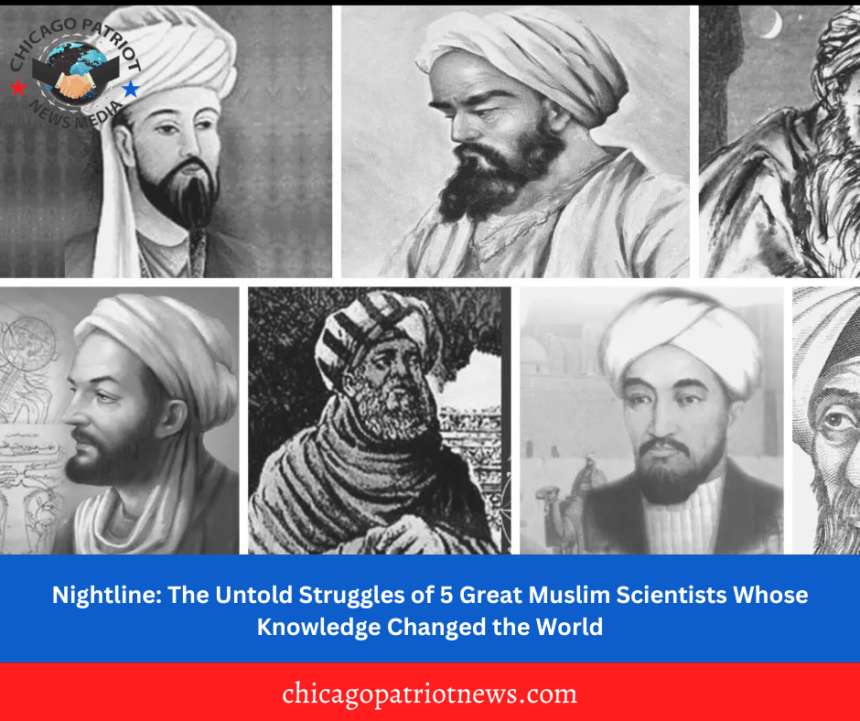Chicago – October 29, 2024
Throughout history, knowledge has often transcended religion and borders. Yet some of the brightest Muslim scientists faced harsh challenges from the rulers of their time, making their accomplishments even more remarkable. Here are five legendary Muslim scholars whose contributions to knowledge continue to impact the world today.
Al-Kindi
Known as the “Father of Arab Philosophy,” Al-Kindi pioneered philosophy, mathematics, medicine, and music. He was a polymath and a key figure in early Islamic philosophy, integrating Greek thought with Islamic teachings. However, when a new ruler came into power, Al-Kindi’s library was banned, and he endured public punishment at the age of 60, ending his scholarly pursuits.
Ibn Rushd (Averroes)
This Andalusian scholar and philosopher contributed extensively to philosophy, theology, law, and science. Ibn Rushd’s interpretations of Aristotle influenced both Islamic and European thought. Accused of atheism, his books were burned by authorities, though his ideas continued to shape European Renaissance thinking.
Ibn Sina (Avicenna)
Often called the “Father of Early Modern Medicine,” Ibn Sina was a Persian physician and philosopher. His work, The Canon of Medicine, became a cornerstone of medical education in Europe for centuries. Despite his contributions, he was declared an atheist, and he spent his final days in hiding from rulers who opposed his views.
Al-Razi (Rhazes)
A Persian physician, philosopher, and alchemist, Al-Razi faced ridicule from the authorities. He suffered severe injuries after a ruler ordered him to be hit with his books until they tore, ultimately causing him blindness. His theories, however, persisted, impacting both Islamic and Western scientific traditions.
Jabir ibn Hayyan
Known as the father of early chemistry, Jabir produced influential works on alchemy, chemistry, and Islamic philosophy. When authorities killed his mother, Jabir fled to Basra, continuing his work despite the tragedy.
Reflecting on these scientists’ challenges, we can wonder: what would today’s world do with such visionary minds? Would they be embraced, or would political pressures still overshadow their contributions?






